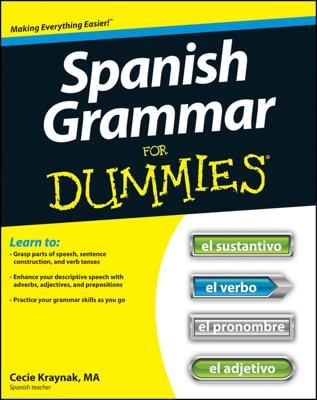Making suggestions and indicating desire are two important functions of the Spanish subjunctive mood. Everyone gives advice or asks for what they want; one of the coolest features of the subjunctive mood is that it enables you (in Spanish) to express desire, hope, or preference; offer suggestions, recommendations, or advice; and even insist or beg for what you want. These expressions of desire, hope, and preference require a combination of two clauses:
The main clause expresses the desire, doubt, or opinion in the indicative mood (statement of fact): for example, “I hope . . . ,” “Sally advises . . . ,” or “Pedro prefers . . .”
The subordinate clause describes that which is being desired, doubted, or offered as an opinion, and you express it in the subjunctive mood: “I hope that my package arrives tomorrow.”
The verbs in the following table express what the subject wants to happen, but the outcome is uncertain, so the subjunctive subordinate clause is required. These expressions of desire are verbs that relay hope, preference, or even a recommendation. Stem changes are in parentheses.
| Verb | Translation |
|---|---|
| Aconsejar | to advise |
| Esperar | to hope |
| insistir en | to insist on |
| Mandar | to order |
| pedir (e to i) | to ask for, to request |
| preferir (e to ie) | to prefer |
| querer (e to ie) | to want |
| Recomendar | to recommend |
| rogar (o to ue) | to pray, to beg |
| sugerir (e to ie) | to suggest |
When the verb in the main clause expresses desire, the verb in the subordinate clause must be in the subjunctive. The conjunction que (that) connects the two clauses, and the subordinate clause (the one that requires the subjunctive) expresses uncertainty as to whether the action in the action actually occurs.
In the following examples, the main verb is underlined, and the subordinate clause (in the subjunctive mood) is in italics:
Él recomienda que yo llegue temprano. (He recommends that I arrive early.)
Ellos prefieren que nosotros no paguemos. (They prefer that we not pay.)

